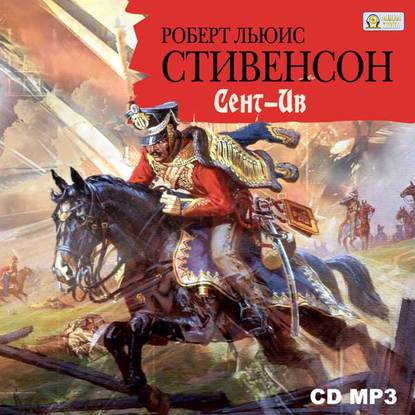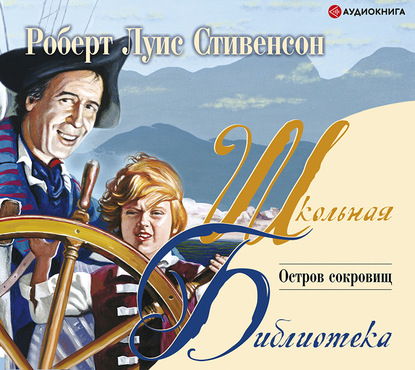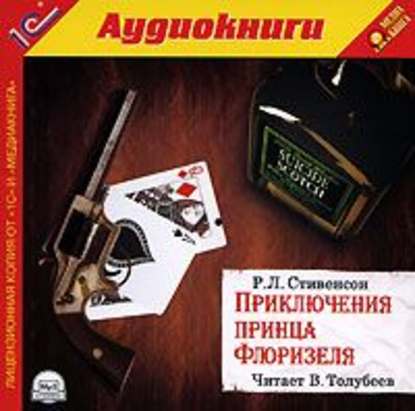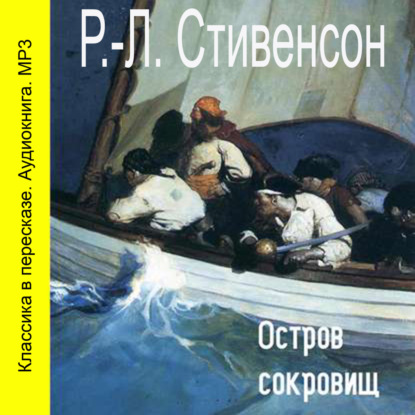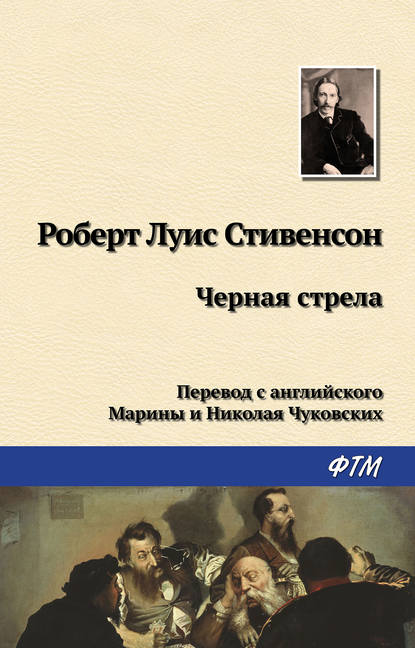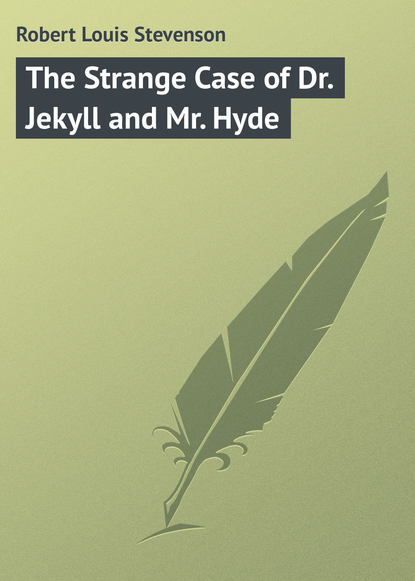
Полная версия
Memories and Portraits
The powers and the ground of friendship is a mystery; but, looking back, I can discern that, in part, we loved the thing he was, for some shadow of what he was to be. For with all his beauty, power, breeding, urbanity and mirth, there was in those days something soulless in our friend. He would astonish us by sallies, witty, innocent and inhumane; and by a misapplied Johnsonian pleasantry, demolish honest sentiment. I can still see and hear him, as he went his way along the lamplit streets, Là ci darem la mano on his lips, a noble figure of a youth, but following vanity and incredulous of good; and sure enough, somewhere on the high seas of life, with his health, his hopes, his patrimony and his self-respect, miserably went down.
From this disaster, like a spent swimmer, he came desperately ashore, bankrupt of money and consideration; creeping to the family he had deserted; with broken wing, never more to rise. But in his face there was a light of knowledge that was new to it. Of the wounds of his body he was never healed; died of them gradually, with clear-eyed resignation; of his wounded pride, we knew only from his silence. He returned to that city where he had lorded it in his ambitious youth; lived there alone, seeing few; striving to retrieve the irretrievable; at times still grappling with that mortal frailty that had brought him down; still joying in his friend’s successes; his laugh still ready but with kindlier music; and over all his thoughts the shadow of that unalterable law which he had disavowed and which had brought him low. Lastly, when his bodily evils had quite disabled him, he lay a great while dying, still without complaint, still finding interests; to his last step gentle, urbane and with the will to smile.
The tale of this great failure is, to those who remained true to him, the tale of a success. In his youth he took thought for no one but himself; when he came ashore again, his whole armada lost, he seemed to think of none but others. Such was his tenderness for others, such his instinct of fine courtesy and pride, that of that impure passion of remorse he never breathed a syllable; even regret was rare with him, and pointed with a jest. You would not have dreamed, if you had known him then, that this was that great failure, that beacon to young men, over whose fall a whole society had hissed and pointed fingers. Often have we gone to him, red-hot with our own hopeful sorrows, railing on the rose-leaves in our princely bed of life, and he would patiently give ear and wisely counsel; and it was only upon some return of our own thoughts that we were reminded what manner of man this was to whom we disembosomed: a man, by his own fault, ruined; shut out of the garden of his gifts; his whole city of hope both ploughed and salted; silently awaiting the deliverer. Then something took us by the throat; and to see him there, so gentle, patient, brave and pious, oppressed but not cast down, sorrow was so swallowed up in admiration that we could not dare to pity him. Even if the old fault flashed out again, it but awoke our wonder that, in that lost battle, he should have still the energy to fight. He had gone to ruin with a kind of kingly abandon, like one who condescended; but once ruined, with the lights all out, he fought as for a kingdom. Most men, finding themselves the authors of their own disgrace, rail the louder against God or destiny. Most men, when they repent, oblige their friends to share the bitterness of that repentance. But he had held an inquest and passed sentence: mene, mene; and condemned himself to smiling silence. He had given trouble enough; had earned misfortune amply, and foregone the right to murmur.
Thus was our old comrade, like Samson, careless in his days of strength; but on the coming of adversity, and when that strength was gone that had betrayed him – “for our strength is weakness” – he began to blossom and bring forth. Well, now, he is out of the fight: the burden that he bore thrown down before the great deliverer. We
“In the vast cathedral leave him;God accept him,Christ receive him!”IV
If we go now and look on these innumerable epitaphs, the pathos and the irony are strangely fled. They do not stand merely to the dead, these foolish monuments; they are pillars and legends set up to glorify the difficult but not desperate life of man. This ground is hallowed by the heroes of defeat.
I see the indifferent pass before my friend’s last resting-place; pause, with a shrug of pity, marvelling that so rich an argosy had sunk. A pity, now that he is done with suffering, a pity most uncalled for, and an ignorant wonder. Before those who loved him, his memory shines like a reproach; they honour him for silent lessons; they cherish his example; and in what remains before them of their toil, fear to be unworthy of the dead. For this proud man was one of those who prospered in the valley of humiliation; – of whom Bunyan wrote that, “Though Christian had the hard hap to meet in the valley with Apollyon, yet I must tell you, that in former times men have met with angels here; have found pearls here; and have in this place found the words of life.”
CHAPTER IV. A COLLEGE MAGAZINE
I
All through my boyhood and youth, I was known and pointed out for the pattern of an idler; and yet I was always busy on my own private end, which was to learn to write. I kept always two books in my pocket, one to read, one to write in. As I walked, my mind was busy fitting what I saw with appropriate words; when I sat by the roadside, I would either read, or a pencil and a penny version-book would be in my hand, to note down the features of the scene or commemorate some halting stanzas. Thus I lived with words. And what I thus wrote was for no ulterior use, it was written consciously for practice. It was not so much that I wished to be an author (though I wished that too) as that I had vowed that I would learn to write. That was a proficiency that tempted me; and I practised to acquire it, as men learn to whittle, in a wager with myself. Description was the principal field of my exercise; for to any one with senses there is always something worth describing, and town and country are but one continuous subject. But I worked in other ways also; often accompanied my walks with dramatic dialogues, in which I played many parts; and often exercised myself in writing down conversations from memory.
This was all excellent, no doubt; so were the diaries I sometimes tried to keep, but always and very speedily discarded, finding them a school of posturing and melancholy self-deception. And yet this was not the most efficient part of my training. Good though it was, it only taught me (so far as I have learned them at all) the lower and less intellectual elements of the art, the choice of the essential note and the right word: things that to a happier constitution had perhaps come by nature. And regarded as training, it had one grave defect; for it set me no standard of achievement. So that there was perhaps more profit, as there was certainly more effort, in my secret labours at home. Whenever I read a book or a passage that particularly pleased me, in which a thing was said or an effect rendered with propriety, in which there was either some conspicuous force or some happy distinction in the style, I must sit down at once and set myself to ape that quality. I was unsuccessful, and I knew it; and tried again, and was again unsuccessful and always unsuccessful; but at least in these vain bouts, I got some practice in rhythm, in harmony, in construction and the co-ordination of parts. I have thus played the sedulous ape to Hazlitt, to Lamb, to Wordsworth, to Sir Thomas Browne, to Defoe, to Hawthorne, to Montaigne, to Baudelaire and to Obermann. I remember one of these monkey tricks, which was called The Vanity of Morals: it was to have had a second part, The Vanity of Knowledge; and as I had neither morality nor scholarship, the names were apt; but the second part was never attempted, and the first part was written (which is my reason for recalling it, ghost-like, from its ashes) no less than three times: first in the manner of Hazlitt, second in the manner of Ruskin, who had cast on me a passing spell, and third, in a laborious pasticcio of Sir Thomas Browne. So with my other works: Cain, an epic, was (save the mark!) an imitation of Sordello: Robin Hood, a tale in verse, took an eclectic middle course among the fields of Keats, Chaucer and Morris: in Monmouth, a tragedy, I reclined on the bosom of Mr. Swinburne; in my innumerable gouty-footed lyrics, I followed many masters; in the first draft of The King’s Pardon, a tragedy, I was on the trail of no lesser man than John Webster; in the second draft of the same piece, with staggering versatility, I had shifted my allegiance to Congreve, and of course conceived my fable in a less serious vein – for it was not Congreve’s verse, it was his exquisite prose, that I admired and sought to copy. Even at the age of thirteen I had tried to do justice to the inhabitants of the famous city of Peebles in the style of the Book of Snobs. So I might go on for ever, through all my abortive novels, and down to my later plays, of which I think more tenderly, for they were not only conceived at first under the bracing influence of old Dumas, but have met with resurrection: one, strangely bettered by another hand, came on the stage itself and was played by bodily actors; the other, originally known as Semiramis: a Tragedy, I have observed on bookstalls under the alias of Prince Otto. But enough has been said to show by what arts of impersonation, and in what purely ventriloquial efforts I first saw my words on paper.
That, like it or not, is the way to learn to write whether I have profited or not, that is the way. It was so Keats learned, and there was never a finer temperament for literature than Keats’s; it was so, if we could trace it out, that all men have learned; and that is why a revival of letters is always accompanied or heralded by a cast back to earlier and fresher models. Perhaps I hear some one cry out: But this is not the way to be original! It is not; nor is there any way but to be born so. Nor yet, if you are born original, is there anything in this training that shall clip the wings of your originality. There can be none more original than Montaigne, neither could any be more unlike Cicero; yet no craftsman can fail to see how much the one must have tried in his time to imitate the other. Burns is the very type of a prime force in letters: he was of all men the most imitative. Shakespeare himself, the imperial, proceeds directly from a school. It is only from a school that we can expect to have good writers; it is almost invariably from a school that great writers, these lawless exceptions, issue. Nor is there anything here that should astonish the considerate. Before he can tell what cadences he truly prefers, the student should have tried all that are possible; before he can choose and preserve a fitting key of words, he should long have practised the literary scales; and it is only after years of such gymnastic that he can sit down at last, legions of words swarming to his call, dozens of turns of phrase simultaneously bidding for his choice, and he himself knowing what he wants to do and (within the narrow limit of a man’s ability) able to do it.
And it is the great point of these imitations that there still shines beyond the student’s reach his inimitable model. Let him try as he please, he is still sure of failure; and it is a very old and a very true saying that failure is the only highroad to success. I must have had some disposition to learn; for I clear-sightedly condemned my own performances. I liked doing them indeed; but when they were done, I could see they were rubbish. In consequence, I very rarely showed them even to my friends; and such friends as I chose to be my confidants I must have chosen well, for they had the friendliness to be quite plain with me, “Padding,” said one. Another wrote: “I cannot understand why you do lyrics so badly.” No more could I! Thrice I put myself in the way of a more authoritative rebuff, by sending a paper to a magazine. These were returned; and I was not surprised nor even pained. If they had not been looked at, as (like all amateurs) I suspected was the case, there was no good in repeating the experiment; if they had been looked at – well, then I had not yet learned to write, and I must keep on learning and living. Lastly, I had a piece of good fortune which is the occasion of this paper, and by which I was able to see my literature in print, and to measure experimentally how far I stood from the favour of the public.
II
The Speculative Society is a body of some antiquity, and has counted among its members Scott, Brougham, Jeffrey, Horner, Benjamin Constant, Robert Emmet, and many a legal and local celebrity besides. By an accident, variously explained, it has its rooms in the very buildings of the University of Edinburgh: a hall, Turkey-carpeted, hung with pictures, looking, when lighted up at night with fire and candle, like some goodly dining-room; a passage-like library, walled with books in their wire cages; and a corridor with a fireplace, benches, a table, many prints of famous members, and a mural tablet to the virtues of a former secretary. Here a member can warm himself and loaf and read; here, in defiance of Senatus-consults, he can smoke. The Senatus looks askance at these privileges; looks even with a somewhat vinegar aspect on the whole society; which argues a lack of proportion in the learned mind, for the world, we may be sure, will prize far higher this haunt of dead lions than all the living dogs of the professorate.
I sat one December morning in the library of the Speculative; a very humble-minded youth, though it was a virtue I never had much credit for; yet proud of my privileges as a member of the Spec.; proud of the pipe I was smoking in the teeth of the Senatus; and in particular, proud of being in the next room to three very distinguished students, who were then conversing beside the corridor fire. One of these has now his name on the back of several volumes, and his voice, I learn, is influential in the law courts. Of the death of the second, you have just been reading what I had to say. And the third also has escaped out of that battle of life in which he fought so hard, it may be so unwisely. They were all three, as I have said, notable students; but this was the most conspicuous. Wealthy, handsome, ambitious, adventurous, diplomatic, a reader of Balzac, and of all men that I have known, the most like to one of Balzac’s characters, he led a life, and was attended by an ill fortune, that could be properly set forth only in the Comédie Humaine. He had then his eye on Parliament; and soon after the time of which I write, he made a showy speech at a political dinner, was cried up to heaven next day in the Courant, and the day after was dashed lower than earth with a charge of plagiarism in the Scotsman. Report would have it (I daresay, very wrongly) that he was betrayed by one in whom he particularly trusted, and that the author of the charge had learned its truth from his own lips. Thus, at least, he was up one day on a pinnacle, admired and envied by all; and the next, though still but a boy, he was publicly disgraced. The blow would have broken a less finely tempered spirit; and even him I suppose it rendered reckless; for he took flight to London, and there, in a fast club, disposed of the bulk of his considerable patrimony in the space of one winter. For years thereafter he lived I know not how; always well dressed, always in good hotels and good society, always with empty pockets. The charm of his manner may have stood him in good stead; but though my own manners are very agreeable, I have never found in them a source of livelihood; and to explain the miracle of his continued existence, I must fall back upon the theory of the philosopher, that in his case, as in all of the same kind, “there was a suffering relative in the background.” From this genteel eclipse he reappeared upon the scene, and presently sought me out in the character of a generous editor. It is in this part that I best remember him; tall, slender, with a not ungraceful stoop; looking quite like a refined gentleman, and quite like an urbane adventurer; smiling with an engaging ambiguity; cocking at you one peaked eyebrow with a great appearance of finesse; speaking low and sweet and thick, with a touch of burr; telling strange tales with singular deliberation and, to a patient listener, excellent effect. After all these ups and downs, he seemed still, like the rich student that he was of yore, to breathe of money; seemed still perfectly sure of himself and certain of his end. Yet he was then upon the brink of his last overthrow. He had set himself to found the strangest thing in our society: one of those periodical sheets from which men suppose themselves to learn opinions; in which young gentlemen from the universities are encouraged, at so much a line, to garble facts, insult foreign nations and calumniate private individuals; and which are now the source of glory, so that if a man’s name be often enough printed there, he becomes a kind of demigod; and people will pardon him when he talks back and forth, as they do for Mr. Gladstone; and crowd him to suffocation on railway platforms, as they did the other day to General Boulanger; and buy his literary works, as I hope you have just done for me. Our fathers, when they were upon some great enterprise, would sacrifice a life; building, it may be, a favourite slave into the foundations of their palace. It was with his own life that my companion disarmed the envy of the gods. He fought his paper single-handed; trusting no one, for he was something of a cynic; up early and down late, for he was nothing of a sluggard; daily ear-wigging influential men, for he was a master of ingratiation. In that slender and silken fellow there must have been a rare vein of courage, that he should thus have died at his employment; and doubtless ambition spoke loudly in his ear, and doubtless love also, for it seems there was a marriage in his view had he succeeded. But he died, and his paper died after him; and of all this grace, and tact, and courage, it must seem to our blind eyes as if there had come literally nothing.
These three students sat, as I was saying, in the corridor, under the mural tablet that records the virtues of Macbean, the former secretary. We would often smile at that ineloquent memorial and thought it a poor thing to come into the world at all and have no more behind one than Macbean. And yet of these three, two are gone and have left less; and this book, perhaps, when it is old and foxy, and some one picks it up in a corner of a book-shop, and glances through it, smiling at the old, graceless turns of speech, and perhaps for the love of Alma Mater (which may be still extant and flourishing) buys it, not without haggling, for some pence – this book may alone preserve a memory of James Walter Ferrier and Robert Glasgow Brown.
Their thoughts ran very differently on that December morning; they were all on fire with ambition; and when they had called me in to them, and made me a sharer in their design, I too became drunken with pride and hope. We were to found a University magazine. A pair of little, active brothers – Livingstone by name, great skippers on the foot, great rubbers of the hands, who kept a book-shop over against the University building – had been debauched to play the part of publishers. We four were to be conjunct editors and, what was the main point of the concern, to print our own works; while, by every rule of arithmetic – that flatterer of credulity – the adventure must succeed and bring great profit. Well, well: it was a bright vision. I went home that morning walking upon air. To have been chosen by these three distinguished students was to me the most unspeakable advance; it was my first draught of consideration; it reconciled me to myself and to my fellow-men; and as I steered round the railings at the Tron, I could not withhold my lips from smiling publicly. Yet, in the bottom of my heart, I knew that magazine would be a grim fiasco; I knew it would not be worth reading; I knew, even if it were, that nobody would read it; and I kept wondering how I should be able, upon my compact income of twelve pounds per annum, payable monthly, to meet my share in the expense. It was a comfortable thought to me that I had a father.
Конец ознакомительного фрагмента.
Текст предоставлен ООО «ЛитРес».
Прочитайте эту книгу целиком, купив полную легальную версию на ЛитРес.
Безопасно оплатить книгу можно банковской картой Visa, MasterCard, Maestro, со счета мобильного телефона, с платежного терминала, в салоне МТС или Связной, через PayPal, WebMoney, Яндекс.Деньги, QIWI Кошелек, бонусными картами или другим удобным Вам способом.
1
1881.
2
Written for the “Book” of the Edinburgh University Union Fancy Fair.
3
Professor Tait’s laboratory assistant.



